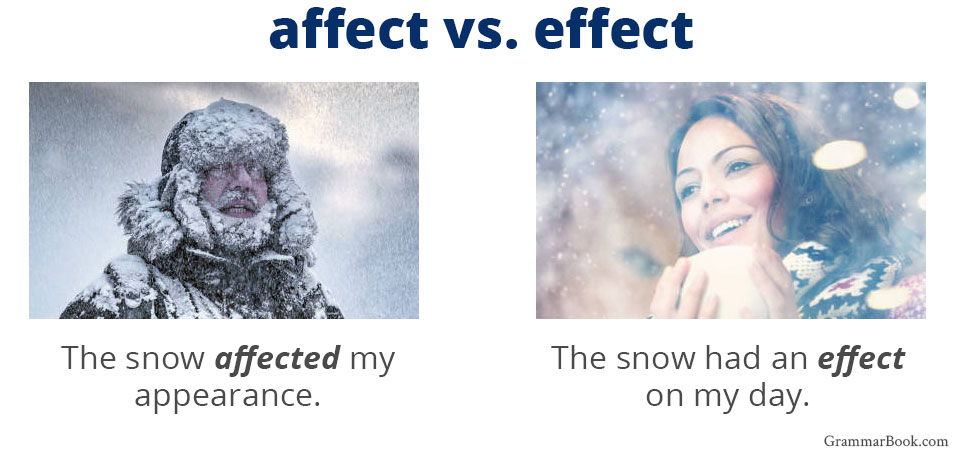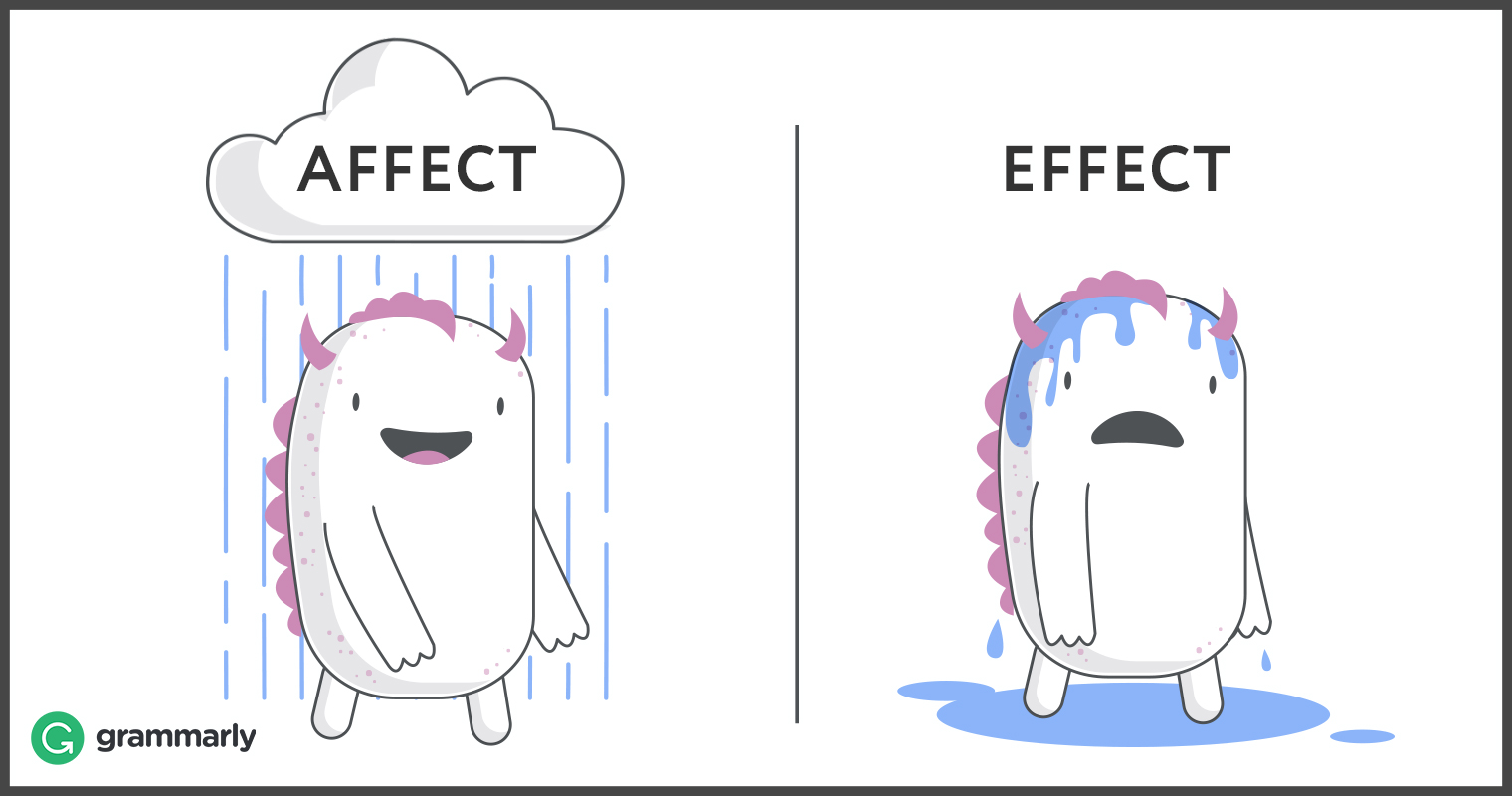

Another trick is to remember that the E in the word “effect” is the end result, while the A in “affect” is for action. One of the tricks to avoid confusion between the words “effect” and “affect” and use them properly is to remember the abbreviation RAVEN, short for Remember Affect is a Verb, Effect is a Noun. The word “effect” is used as a noun, meaning result or consequence, while “affect” is a verb, which means to act on or move feelings. Don't be one of them! Another trick is to remember that affect comes first alphabetically, and an action ( to affect) has to occur before you can have a result ( an effect).The words “effect” and “affect” are two different words that have different spellings and meanings. The difference between affect and effect is so slippery that people have started using "impact" as a verb instead. Most of the time, you'll want affect as a verb meaning to influence something and effect for the something that was influenced. Put another way, a government that can't produce change won't be able to produce surprises it will be predictable. "Did you have a significant effect on the development of some strain of philosophy that profoundly impacted the world?" ( Made You Up)Īdding to the confusion, effect can also be used as a verb to mean "to produce or to cause to come into being." Here's an example that uses it correctly:Ī government unable to effect any change is a government that will produce no surprises. The downed power line had an impact on some power customers: they were without electricity overnight.Įffect is most commonly used as a noun meaning "the result or impact of something, an outcome." If there's "a/an/the" in front of it, it's an effect.


It means to influence something, such as in the headline from the Albuquerque News: You can't affect the creepy poem by reading it, but you can enjoy the effect of a talking bird. Think of Edgar Allan Poe and his RAVEN: Remember A ffect Verb E ffect Noun. Choosing between affect and effect can be scary.


 0 kommentar(er)
0 kommentar(er)
